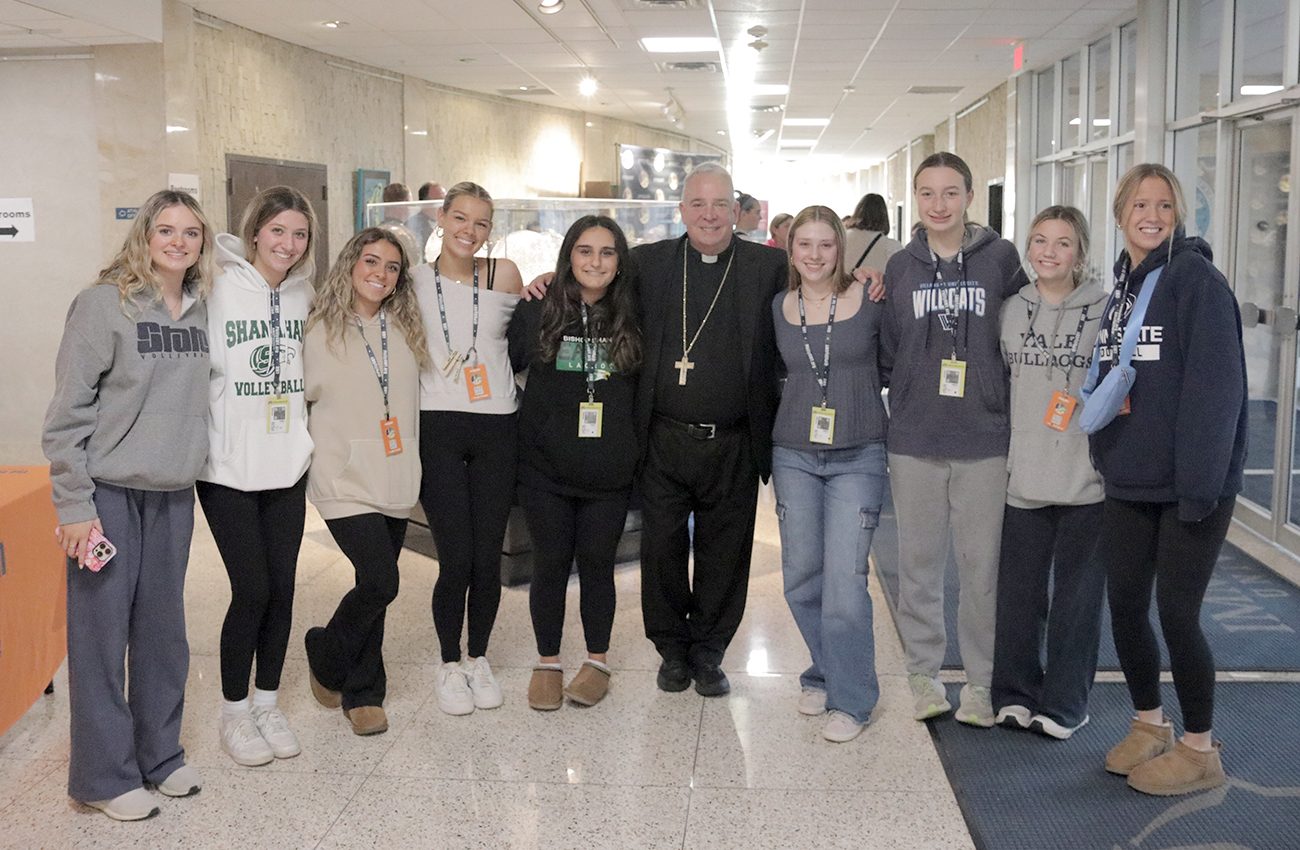To help more young people engage with the Catholic Church, the Archdiocese of Philadelphia’s Office for Ministry with Youth (OMY) is implementing a way for those who serve young Catholics to become more effective evangelizers.
Ministry 101 is part of “The Track,” a pathway OMY has developed for youth-ministry leaders to become better educated, equipped and certified to provide effective ministry.
“It’s meant to be the door that opens the way for adults who have a heart for young people to find out how to better to engage the young people in my parish community, whether you are formally a minister with youth, or someone who’s been assigned or has self-assigned that role,” said OMY Director Marisally Santiago.
The next Ministry 101 is scheduled for Saturday, Sept. 6 at 9 a.m. at the Archdiocesan Pastoral Center, 222 North 17th Street in Center City Philadelphia. (Register for the day-long program here.)
The interactive, conversation-driven session orients ministry leaders in four areas, while avoiding an “information dump” of all the answers to every subject being presented, according to Santiago.
The first area involves understanding the landscape of youth ministry today.
“What does it take to walk with young people? What are their needs? What are they seeking? How do we pair that and look at that in our own local contexts in order to be able to do the best work that we can, that the Spirit calls us to?” said Santiago.
“Ministry with youth is so much bigger than youth groups. How do we engage our young people into a lifelong discipleship mindset? What are those things that need to be set up in a parish setting to really make it robustly and intentionally engage their young people?”
The second area, Santiago says, asks the minister to understand their own particular role — both as the individual accompanying a young person and as a leader within the parish.
“When we’re called to walk with young people, what does that mean for me personally? Am I the person that gives every talk or coordinates a bunch of events?” said Santiago.
“We want people to understand that when they are a minister, they are really also coordinators. That part of their role is to really help the parish, along with their pastor, build a culture that welcomes and engages young people, a culture that prioritizes young people and their families in a parish.”
The third piece that Santiago emphasizes involves establishing the vision and goal of ministering to young people. She gave an example from earlier in her career as a youth minister.
“We would say it was to ‘Encounter, experience and empower.’ Encounter Christ, experience the beauty of the Catholic Church in authentic friendship, and empower for a life of faith. Those were our guiding lights,” she said.
Developing that vision “was very helpful in our ability to invite young people into leadership, into their work of ministering to their peers as well,” Santiago said.
Setting the right goals is important because “we can do a million things, and lots of great things exist, but do they meet what we see are the needs of the youth of our particular parish?” she said.
The last piece Santiago presents involves the realization that youth ministry is not only a vocation, but a profession, and that youth ministry deeply involves establishing the structures of success in effectively walking with young people on their journey with Christ.
“In any profession, we don’t just wing it. We grow. We learn. We try to connect with others that also do this work. We seek support,” she said.
Ministry 101 aims to build support structures for youth ministers working on budgets, communications with pastors and parishioners, and professional habits geared for success.
“We maximize the efforts of ministry through the administrative aspect, especially since we’re trying to mobilize entire parish communities to prioritize youth and their families,” Santiago said.
The day of sessions is intended to orient youth ministers toward the next step of “The Track,” which will offer continuing education and a pathway to certification in youth ministry for minister cohorts.
“There is a deeper desire for formal formation,” Santiago said. “I think across the board, across the nation, there’s a recognition of stepping up our game.”
PREVIOUS: New Website, Platforms, Bring Radio Ministry to New Listeners
NEXT: FLAME Ignites Fellowship for Catholics in Their 40s and 50s



Share this story